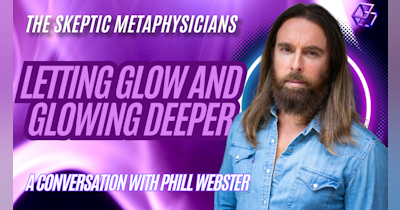Embarking on a spiritual journey of self-discovery, former Buddhist monk Donald Altman uncovered a powerful, life-altering secret within the depths of his soul. What mysteries will be unveiled when readers explore Donald's book, Travelers?
“When these anomalies happen in our lives, these things that we often think are coincidences maybe are not coincidence.” - Donald Altman
Mindfulness vs. Meditation
In today's fast-paced world, many people are seeking ways to reduce stress and find inner peace. Mindfulness and meditation are two practices that can help one achieve this state of tranquility. Mindfulness, as described by experts, is the practice of being present in the moment and paying attention to your senses, emotions, and thoughts without judgment. Meditation, on the other hand, usually involves focusing on a specific object or thought to quiet the mind. Donald Altman shared his expertise on the subject, explaining that while meditation focuses on a particular object or thought, mindfulness involves being open to every sensation and thought that enters one's consciousness. According to Altman, mindfulness requires intentionality - the ability to consciously direct one's attention in a manner that benefits both the self and others. By practicing mindfulness, individuals can develop a greater awareness and understanding of their own emotions, which in turn can lead to more compassionate and harmonious relationships with both themselves and the people around them.
Donald's Experience as a Buddhist Monk
Embracing a spiritual path can be a transformative experience for many individuals. One such transformative journey was the time Donald Altman spent as a Buddhist monk. He decided to join a monastery in search of healing and understanding of the repetitive and destructive patterns he had been experiencing in his life. His quest for knowledge was fueled by his desire to learn the secret behind the kindness and compassion of a particular Buddhist monk he encountered. In the podcast, Donald shares that his time in the monastery not only taught him about focusing his mind and paying attention to his emotions but also allowed him to harness the power of his mind to break free of self-imposed limitations. He recalled a time when he successfully used his concentration skills to overcome hunger after his midday meal, something that he had not initially believed was possible. Donald learned that each individual has the potential to achieve greatness through the practice of mindfulness, intentionality, and compassion.
Loving-Kindness Meditation
One of the many ways to cultivate compassion and kindness is through a practice known as loving-kindness meditation. This practice involves sending warm wishes and positive feelings towards oneself, loved ones, acquaintances, neutral individuals, and even difficult people in one's life. By practicing loving-kindness meditation, one can gradually learn to extend compassion to all sentient beings, promoting a sense of interconnectedness and empathy. During the podcast, Donald Altman discussed loving-kindness meditation, which he discovered during his journey as a Buddhist monk. By practicing this meditation technique, Altman believes individuals can change their perspective on life, becoming more empathetic and understanding towards the people in their lives. He further points out that this practice can help foster spiritual growth and personal development among individuals, ultimately leading to a more compassionate way of living.
Spiritual Awakening vs. Schizophrenia
The definition of mental illness and its diagnostic criteria continue to evolve, alongside ongoing debates about the relationship between spiritual experiences and psychotic disorders. One common area of discussion is the differentiation between spiritual awakening, a process of self-discovery and realization, and schizophrenia, a mental disorder characterized by disruptions in thought, behavior, and perception. Donald Altman touched on this topic, stressing the importance of discerning between the two phenomena. He emphasizes that while there may be similarities between a spiritual awakening and schizophrenia, the key factor in distinguishing them is whether a person's experience prevents them from leading a normal life. If an individual's symptoms are disruptive and persistent, medical intervention may be necessary. It is important to consider the nuances and complexities of each person's experience before drawing conclusions, ensuring that appropriate care and support are provided.
Importance of Connection
In the realm of therapy and healing, one crucial factor often takes precedence over the specific modality or techniques used: the connection between healer and client. A strong rapport and bond between the therapist and the person seeking help can greatly influence the success and effectiveness of the healing process. During the podcast, Donald Altman emphasized the significance of this connection. He shared that moments of genuine laughter and interaction between therapist and client can be therapeutic and healing in their own right. For therapy to work, it must focus on guiding the individual to find their path and enjoy the journey, as opposed to dictating a predetermined route. By prioritizing connection and understanding, both therapists and those seeking help can forge a partnership that promotes personal growth, healing, and self-discovery.














